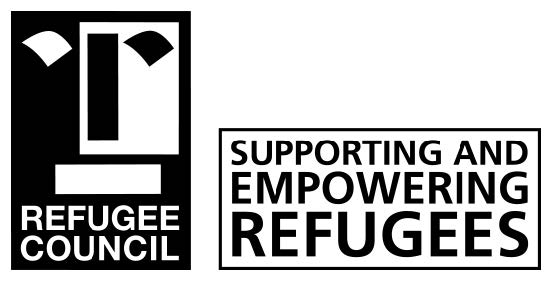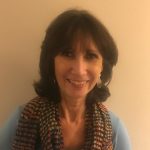 Member Login
Member Login

Getting to grips with life in the UK for refugee doctors often entails going back into the classroom. Louise Lemoine, a retired medical professional, explains how switching to preparing the OET has given her classes an unexpected boost.
 I had sat in this room at the Refugee Council with my students on so many occasions over the past three years, but this Tuesday morning in May was different. More refugee doctors than ever were present, and I had never seen them so engaged in the lesson. I had just read out the OET role play card and, when I looked up, every eye was upon me, arms and elbows on the table, bodies leaning eagerly forward. Three months earlier, the General Medical Council (GMC) had decided to accept the Occupational English Test (OET) as proof of a doctor’s language skills. If I had needed more confirmation of the difference that decision was making, this moment said it all.
I had sat in this room at the Refugee Council with my students on so many occasions over the past three years, but this Tuesday morning in May was different. More refugee doctors than ever were present, and I had never seen them so engaged in the lesson. I had just read out the OET role play card and, when I looked up, every eye was upon me, arms and elbows on the table, bodies leaning eagerly forward. Three months earlier, the General Medical Council (GMC) had decided to accept the Occupational English Test (OET) as proof of a doctor’s language skills. If I had needed more confirmation of the difference that decision was making, this moment said it all.
I am a medical doctor with experience in clinical medicine, clinical and laboratory-based research and as an assistant editor for a medical journal. I have always been fascinated by language and different cultures. Latin was a favourite subject at school and I speak Spanish, some French, German and Portuguese. In 2015 I made the decision to embark upon a new career as a teacher of English for medical professionals, specifically refugee doctors. Having gained a CELTA qualification, I set about achieving my aim.
After doing some research, I discovered the Refugee Council’s inspirational Building Bridges Programme based in Stratford, East London. This programme supports refugee healthcare professionals to re-qualify to UK standards and find suitable employment. It is an NHS funded partnership between The Refugee Council (the lead partner), Glowing Results (an English language school), RAGU (London Metropolitan University’s Refugee Assessment and Guidance Unit) and several hospitals and GP practices. To work in the UK, the GMC requirement is that doctors must first demonstrate necessary English language skills by passing a test. When I encountered the project, this test was IELTs and refugees received help though the language school, Glowing Results. Then the GMC requires doctors to demonstrate appropriate medical skills and knowledge by passing the Professional and Linguistic Assessments Board test, known as the PLAB. As its name implies this test has an important linguistic component. Volunteer doctors run classes to help refugee doctors to refresh their medical knowledge and skills before taking this test. As part of the programme, the Refugee Council organises clinical attachments through a clinical apprenticeship scheme, helping doctors to access their first NHS post, and RAGU offers careers advice and guidance.
After meeting with Fahira, the project manager for the programme, I began mentoring doctors who were attending preparation classes for IELTs and PLAB. Each week I selected one of the many free interesting places to visit in London. Some examples include the National Gallery, the Victoria and Albert Museum, The Wellcome Collection, the Hunterian Museum. We called this, ‘Learning English and Getting to know London’. It was an excellent opportunity for doctors to practise English outside of the classroom with natural English speakers, to become familiar with different English accents and dialects and to learn and put into practice lexis and functional language relevant to everyday life in the UK.
I also helped at some ‘Preparation for PLAB’ classes. It had taken most of the doctors in these classes many attempts over several years to achieve the required result in IELTS.
It was glaringly apparent that IELTS was the major barrier to their goal of working in the NHS. So much time spent trying to gain IELTS is soul-destroying, especially given the hardship they have already experienced; forced to flee their country because of persecution, war or violence. How could I help? I set about familiarising myself with IELTS. The Refugee Council ran a ‘pre-IELTS’ class which was set up for new refugees and those who were not yet at the required standard to join the Glowing Results IELTS class. I taught alongside Tony Cleary, a retired history teacher. Three years later I am still there, which brings me back to my opening paragraph. Due to the students’ strongly positive response to OET, we now focus on this exam and no longer teach IELTS.
Both IELTS and OET are tests of English language proficiency, but OET places language in a medical context which is familiar to our doctors, allowing them to relax and do well. The sooner refugee doctors get back to using their medical skills, the better it is for their self-esteem and the better it is for our under-staffed NHS. Months, often years, spent attempting IELTS without practising their skills is detrimental. It is early days, but there is already strong evidence that OET is having a positive impact. The Building Bridges partnership supports around 85-100 doctors a year. On average, 7 doctors per annum reached the required IELTS score taking two to three years each. In marked contrast, 16 doctors had achieved the required result in OET within the first six months of its introduction.
The lexis, functional language and communication skills necessary for the OET provide excellent preparation for a medical career in the UK. OET is a bridge between a test of proficiency in English and PLAB. Indeed, because the language and communication skills required for the speaking and writing components of OET are the same as those required for PLAB, volunteer medical professionals at the Refugee Council who prepare refugee doctors for PLAB are now assisting in OET preparation classes.
The doctors attending our class are daring to look towards the future. As one young Sudanese doctor put it, “When I was studying for IELTS, I woke each morning and I felt as if I was walking further away from my career. Now that I am studying for OET, I am walking towards my career. I feel like a doctor again.”
I have never felt so enthusiastic as a teacher. After the rigours of the IELTS test, the medical OET exam is giving refugee doctors well-deserved hope.
 Dr Louise Lemoine works with refugee doctors as a mentor and teacher of medical English. She is a retired medical practitioner with a CELTA qualification and experience in clinical medicine, research and medical journalism.
Dr Louise Lemoine works with refugee doctors as a mentor and teacher of medical English. She is a retired medical practitioner with a CELTA qualification and experience in clinical medicine, research and medical journalism.